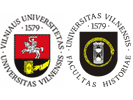Žilvinas Kačiuška
Doktorantas
Vilniaus universiteto Istorijos fakulteto
Istorijos teorijos ir kultūros istorijos katedra
Tel. 268 72 88
El. paštas: zilvinas.kaciuska@if.vu.lt
“We first begin to understand how social structures really work only after
they have fallen apart. This may be the perfect moment to begin
anthropology of socialism”1
S. Sampson
Abstract. After a collapse of the Soviet Union most of Central and East European countries, including Lithuania, are often entitled as “the second echelon”, agrarian region, periphery of Western civilization or the “Third World”2. The cultural and economical lag is often said to be caused by a mental gap, which was constructed by model of soviet collectivism and planned economy3. Herewith, slowly changing categories in cognition impact the reflections on market economy model and its mode of functioning.
The ideological and physical installation of collectivism and disruption of private sector during Sovietism in Lithuania contradicted the centenary traditions of private (individual) business’ understanding. The shadow status of the private sector influenced a perverted evolution of property relations, which distinguished by private sector development processes, which dubbed state functions. After the recovery of independence, speedy land economy, property and social reforms in the village and city clashed with the expressions of collectivism practice and traditions of shadow business, which had been implanted during epoch of Sovietism. This evoked the feeling of uncertainty and social strain in post soviet society.
Why “New Europe”?
Socio-humanitaric sciences link the collapse of the Soviet Union with the new period in world history, which gave birth to various political, cultural economical or social alternations4 . These alternations are often being explained as the signs of forthcoming power redistribution or cultural
___
1 Niedermüller P. Arbeit, Identität, Klasse // Arbeit im Sozialismus – Arbeit im Postsozialismus. Erkundungen zum Arbeitsleben im östlichen Europa (ed. Christian Giordano). Münster, 2004, p. 23.
2 Frank A. G. The Thirdworldisation of Russia and Eastern Europe // The Aftermath of “Real Existing Socialism” in Eastern Europe (ed. Jacques Hersh, Johanes Dragsbeak Schmidt). Vol. 1. London, 1996, p. 43–44.
3 The term of collectivisation in the aforementioned article comprises the comprehensive connotation of this phenomenon, emphasising complex (ideological, legal, economical) aspect of the socio-culturally alien influence of historically established community structures
4 Humphrey C. The unmaking of Soviet life: Everyday economies after Socialism. London, 2002, p. xx–xxi. | 

 dizainas ir programavimas giriaus
dizainas ir programavimas giriaus  dizainas ir programavimas giriaus
dizainas ir programavimas giriaus